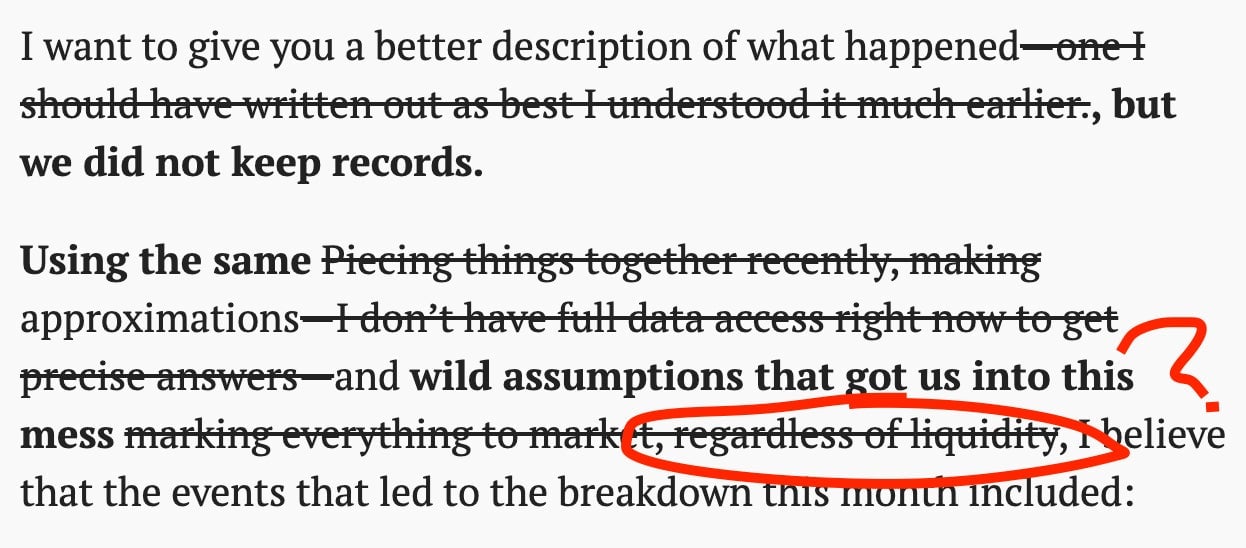🌏 Fighting Foxconn
Plus: The UK blocked Scotland’s independence vote.

Good morning, Quartz readers!
Here’s what you need to know
Mass protests broke out at China’s flagship Foxconn iPhone factory. A plan to delay bonus payments amid poor working conditions and strict covid regulations triggered worker unrest. Foxconn is now offering new hires $1,400 to leave the plant.
The UK’s top court blocked Scotland’s independence vote plans. The Supreme Court ruled that Scotland cannot hold a referendum on secession without UK government consent.
The EU’s proposed Russian oil price cap was called a “dud.” Prices may be set at $65-$70 per barrel, Bloomberg reports, which is already in the ballpark of Russian oil’s current price. The final cap decision is due to be made today (Nov. 24).
Royal Mail workers will strike during the holiday season. Labor action around Black Friday and Christmas is expected to cause major disruptions for retailers and shoppers.
The IMF reached a deal with Ukraine. The “staff-level” policy monitoring agreement could help Kyiv secure a multibillion-dollar IMF loan next year.
Volkswagen will no longer pay Twitter any money. All of the auto giant’s brands—including Audi, Bentley, and Porsche—have halted advertising and in some cases organic tweeting following Elon Musk’s Twitter takeover.
What to watch for
In a gloomy year for tech companies, China’s Baidu is sounding a cautiously upbeat note about its prospects. The search engine giant delivered better-than-expected revenue growth in the third quarter, with sales rising to 32.5 billion yuan ($4.6 billion).
The company believes that it doesn’t have much to worry about from new US export restrictions on advanced semiconductors. Baidu can tap its chip stockpile in the near term, turn to alternatives in the medium term, and develop its own AI chip in the longer term.
Whether Baidu’s sanguine outlook will be shared by other Chinese tech firms remains to be seen. Smartphone maker Xiaomi posted a surprise net loss yesterday amid weak consumer demand and uncertainty about China’s covid situation. Tomorrow (Nov. 25), it’ll be food delivery app Meituan’s turn to signal what’s to come for the battered sector.
We fixed SBF’s memo

For a man facing financial ruin, untold numbers of lawsuits across the world, and possible criminal charges, Sam Bankman-Fried is awfully chatty. In his memo to employees, the disgraced former FTX CEO, like so many executives before him, aims for what he calls “transparency” while actually just giving his side of the story.
A faithful accounting of FTX’s collapse requires an editor willing to ruthlessly cut the bullshit.
Quartz’s editor-in-chief Zach Seward has taken up the task, grabbing a red pen to strike words, sentences, and entire paragraphs, particularly the ones that contained lengthy explanations bordering on justifications of irresponsible practices, misguided hopes that the company could still survive, and reminders that the debacle was not the employees’ fault (duh).
The edit that really sums it all up was one important addition to a key sentence, in bold:
The murderous weapon in the war on drugs
Glyphosate is the most common herbicide in the world. Developed by the agricultural giant Monsanto in the 1970s, it has been applied manually in farms all over the globe to target weeds while protecting main crops.
In Colombia, however, it has historically been used for another purpose: the forced destruction of illegal coca plantations.
The problem is, when glyphosate is sprayed from planes at a high concentration, it kills the coca (and every other crop in the vicinity) but also causes skin and respiratory issues, miscarriages, and even death to any humans unlucky enough to be in the area. Quartz’s Annalisa Merelli dives into the gruesome history of the drug war’s herbicidal weapon.
✦ Do stories like these help change how you see the world? Help keep Quartz accessible to others by buying a membership at 50% off our usual price.
Surprising discoveries
The Eurovision Song Contest opened up voting to the rest of the world. A new rule allows viewers based in non-participating countries to support their favorite act.
Volcanic eruptions turned Venus into a hellscape. Or, in NASA’s words, “Volcanic activity lasting hundreds to thousands of centuries… may have helped transform Venus from a temperate and wet world to the acidic hothouse it is today.”
Dolphins don’t mind hot sauce on fishing nets. The addition of the spicy condiment didn’t deter the hungry mammals from bogarting fishermen’s catches.
Great bustards know how to avoid an STI. The world’s heaviest birds appear to seek out medicinal plants during the coupling season to fend off diseases and improve their mating chances.
There are now 900% more Thanksgiving songs than before. We’re grateful for the Washington Post’s Alexandra Petri, who, with some help from composers and artists, invented nine winning tracks to fill a real void.
Our best wishes for a productive day. Send any news, comments, spicy fish snacks, and gourds to [email protected]. Reader support makes Quartz available to all—become a member. Today’s Daily Brief was brought to you by Ananya Bhattacharya, Sofia Lotto Persio, Julia Malleck, and Susan Howson.